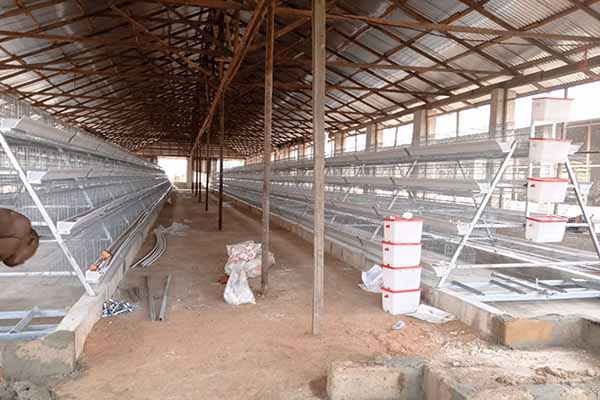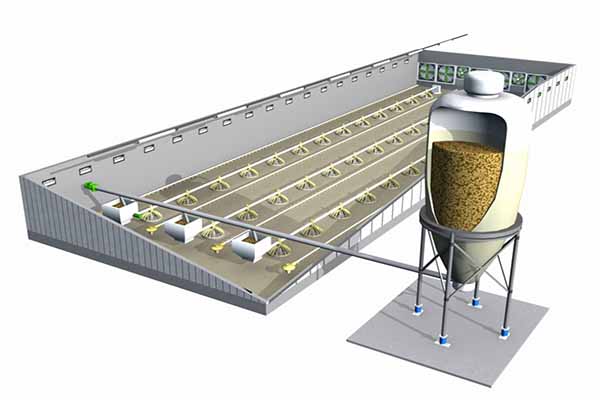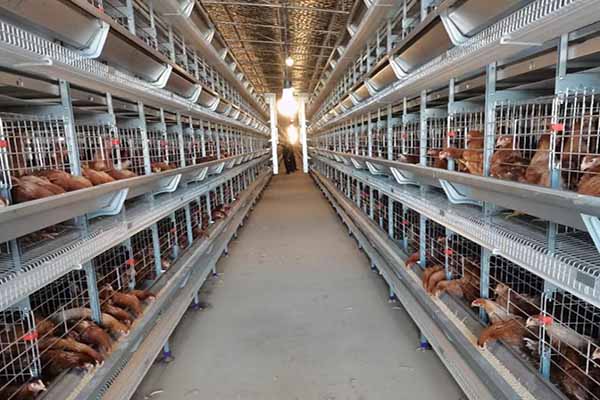How to Start a Pasture-Raised Chicken Farm: A Comprehensive Guide
Time : 2025-06-27
Starting a pasture-raised chicken farm is an exciting venture that combines the joy of agriculture with the health benefits of organic, free-range chicken. This guide will walk you through the essential steps to get your pasture-raised chicken farm up and running, focusing on the use of professional poultry equipment and best practices for sustainable farming.

1. Research and Planning
Before diving into the world of pasture-raised chickens, thorough research and planning are crucial. Here’s what you need to consider:

- Market Research: Understand the demand for pasture-raised chicken in your area. Analyze competitors and identify your unique selling points.
- Regulatory Compliance: Familiarize yourself with local and federal regulations regarding poultry farming, including permits, inspections, and biosecurity protocols.
- Business Plan: Outline your business goals, marketing strategy, financial projections, and operational plan.
2. Selecting the Right Location
Your farm’s location will greatly impact your operation. Consider the following factors:
- Accessibility: Ensure your location is easily accessible to suppliers, customers, and service providers.
- Land Quality: Choose a site with well-drained soil and a suitable climate for raising chickens.
- Water Source: Access to a reliable water source is essential for your flock and irrigation needs.
- Neighborhood Concerns: Be mindful of local zoning laws and potential neighborhood concerns regarding poultry farming.
3. Designing Your Chicken Coop
A well-designed coop is crucial for the health and safety of your chickens. Here are some key considerations:
- Size and Layout: Ensure your coop is large enough to accommodate your flock and provide space for movement. Divide the space into sleeping, nesting, and roosting areas.
- Climate Control: Use ventilation and insulation to regulate temperature, keeping chickens comfortable year-round.
- Security: Implement secure fencing and locks to protect your chickens from predators.
- Professional Equipment: Invest in quality equipment like automatic waterers, feeders, and nesting boxes for efficiency and convenience.
4. Choosing the Right Chicken Breed
Selecting the right breed for your pasture-raised chicken farm is essential for productivity and sustainability:
- Hardiness: Choose breeds that are well-suited to your climate and can withstand predators.
- Productivity: Consider the egg-laying ability and meat production of different breeds.
- Health: Opt for breeds with a good disease resistance and low risk of genetic defects.
5. Establishing a Pasture System
A pasture system is key to the success of a pasture-raised chicken farm. Here’s how to set it up:
- Land Management: Plan your pasture layout to ensure proper rotation and prevent overgrazing.
- Mobile Coops: Use mobile coops to manage the chickens’ movement across the pasture, allowing them to forage and fertilize the soil naturally.
- Supplemental Feeding: Provide access to high-quality feed to supplement the pasture diet and ensure your chickens receive all necessary nutrients.
6. Implementing Biosecurity Measures
Biosecurity is crucial to prevent disease outbreaks on your farm:
- Sanitation: Maintain clean coops and equipment to minimize the risk of disease transmission.
- Isolation: Isolate new arrivals from the main flock to prevent the spread of diseases.
- Monitoring: Regularly monitor your flock for signs of illness and seek veterinary advice promptly if needed.
7. Marketing Your Pasture-Raised Chicken Farm
Effective marketing is essential to attract customers and build a loyal customer base:

- Brand Identity: Create a strong brand identity that reflects your farm’s values and mission.
- Direct Sales: Offer direct sales options such as farm gate sales, farmers’ markets, and online ordering.
- Wholesale: Explore opportunities to supply local restaurants, stores, and food cooperatives.
- Word of Mouth: Encourage satisfied customers to refer friends and family to your farm.
8. Financial Management
Sound financial management is essential for the long-term success of your farm:
- Budgeting: Create a detailed budget to track expenses and income.
- Cost Control: Implement strategies to reduce costs, such as efficient use of feed and labor.
- Insurance: Protect your investment with appropriate insurance coverage.
9. Continuous Learning and Improvement
The world of agriculture is always evolving. Stay informed about new technologies, best practices, and industry trends to improve your farm’s performance:
- Education: Attend workshops, webinars, and conferences to learn from industry experts.
- Networking: Connect with other farmers and share experiences and knowledge.
- Innovation: Stay open to new ideas and technologies that can enhance your operation.
Starting a pasture-raised chicken farm is a challenging yet rewarding endeavor. By following these steps and focusing on the use of professional poultry equipment, you can establish a sustainable and profitable farm that provides high-quality, pasture-raised chicken to your customers.











